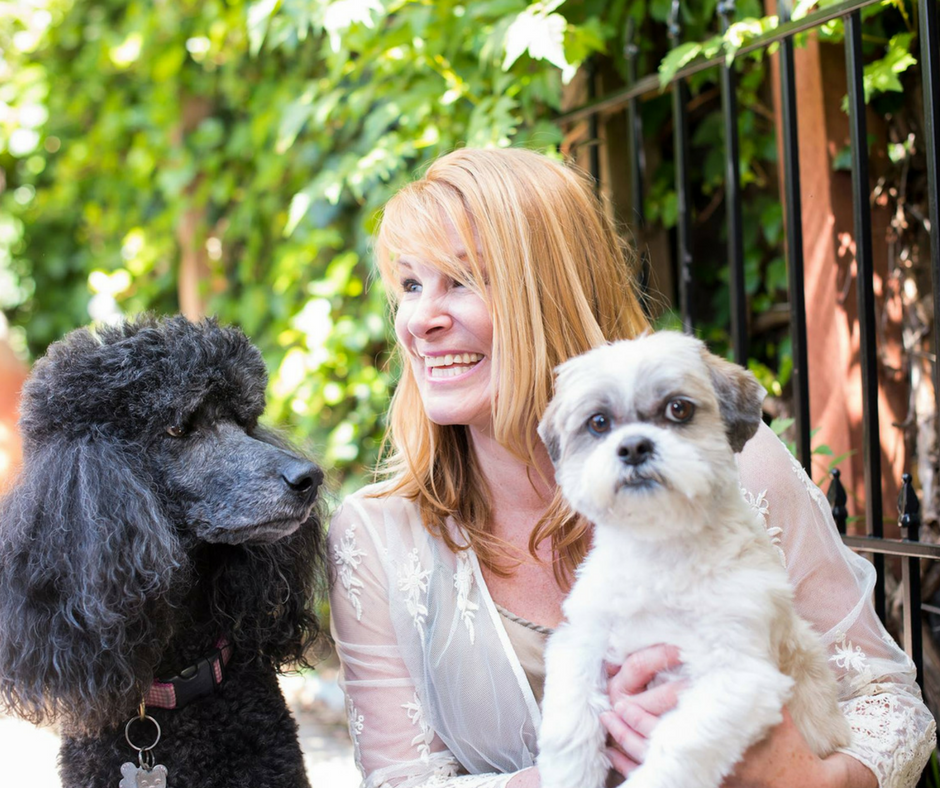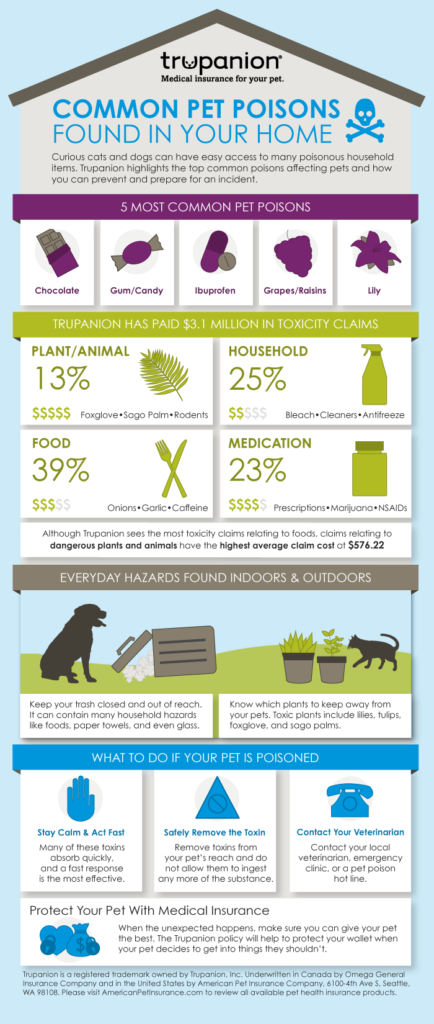
Last month, our little Shih Tzu Russell decided to eat a hair scrunchi that had dropped onto the floor. Being the resourceful dog mom that I am, I was using the scrunchi to keep our Standard Poodle’s ears back while she eats. I was out in the backyard scooping poop because that’s the glamorous life I lead and she shook it off. Russell must have confused it with something worth eating and gobbled it right up. After Russell spent two days in the hospital, we decided to invest in a “snood” to hold our poodle’s ears back to solve the problem.
Dogs are interesting creatures. Some of them are extremely finicky and others are what I refer to as “cleaners” or “sidewalk snackers.” We have three dogs. Greta, our chihuahua mix, is extremely cautious and I rarely have to worry about her getting into anything. Hoppy, our Standard Poodle, is somewhere in between and then there’s little Russell. Thank goodness for our awesome pet insurance through Trupanion.
Because I have a dog that can get into things that are potentially harmful to him, I “dog proof” our house to keep him and the others safe. Even if your dog is pretty good about what he or she decides to munch on, I still recommend keeping potential hazards away from your pooch.
Here are a few pet safety tips courtesy of our pet insurance company Trupanion to help keep your fur babies happy and healthy:
- Keep cleaners and chemicals well out of reach. Allow any cleaners to air out and dry before you let your dog or cat sniff around. Trupanion has seen several claims for pets who have ingested everything from Mr. Clean to Fantastic All Purpose Heavy Duty Cleaner. Choosing natural cleaning substances are safer options for your pet as well as the humans. You can make a highly effective all-purpose cleaner using half a cup of white vinegar and water and baking soda can be a safe way to absorb unpleasant smells.
- Plant a pet-safe garden. Choose safe plants for your dog or cat when working in the garden or bringing plants into your home this spring. Herbs, vegetables—except for onions, chives, leeks and garlic— daises, roses, and violets are all great options that your pet can get into without concern. Take care with certain fertilizers, insecticides, and herbicides. They can be dangerous for your curious dog or cat.
- Prevent pesky pests from infesting your pet. Fleas, ticks, and worms become especially prevalent as temperatures rise. Talk to your veterinarian about parasite preventatives for your pet, which may vary depending on where you live.
POISON PREVENTION FOR YOUR PETS
Lilies and household cleaners are abundant in the spring—and toxic for our pets. Below you’ll find Trupanion’s infographic on common household toxins for cats and dogs and they’ve included tips from their veterinarians on how to keep your pet safe.
- Keep emergency contact information readily accessible including your veterinarian’s phone number and directions to your local 24-hour emergency veterinary hospital. You never want to be caught off guard.
- Prepare a pet first aid kit with any supplies you may need in case of an emergency. Make sure you include emergency contact information in the first aid kit as well.
- Familiarize yourself with pet poisons and keep them out of reach of your pets. If you believe your pet has ingested a poison, do not wait for signs to develop — take your pet immediately to the veterinarian. If you can, quickly gather information on what was ingested and how much your pet was exposed to.
- Consult your veterinarian to determine the best plan for you and your pet. Do not try to treat them with home remedies unless instructed by a veterinarian or expert.

It’s easy to take great care of your pets when you have the right information.
Herre’s to happy pets and happy humans!
Shared with love,
Jennifer
Quick disclaimer: I’m proud to announce that I have partnered with Trupanion as an affiliate. I only promote companies that I believe are the very best at what they do and that their product could benefit you. Trupanion has helped us pay thousands of dollars toward our vet bills and has given us the ability to provide the very best veterinary care for our beloved animals.









